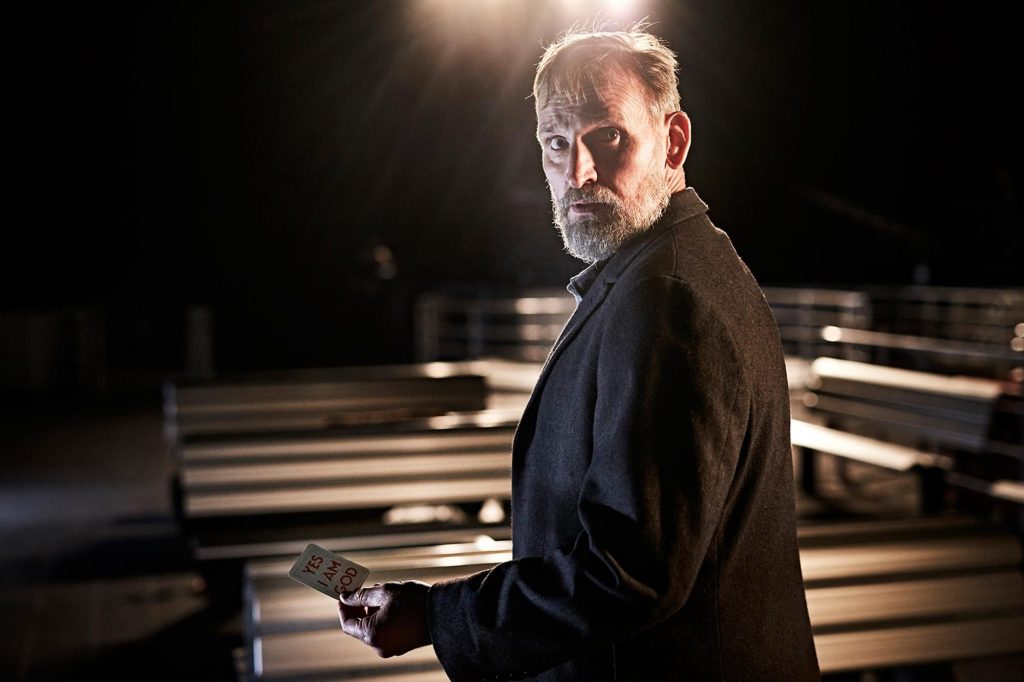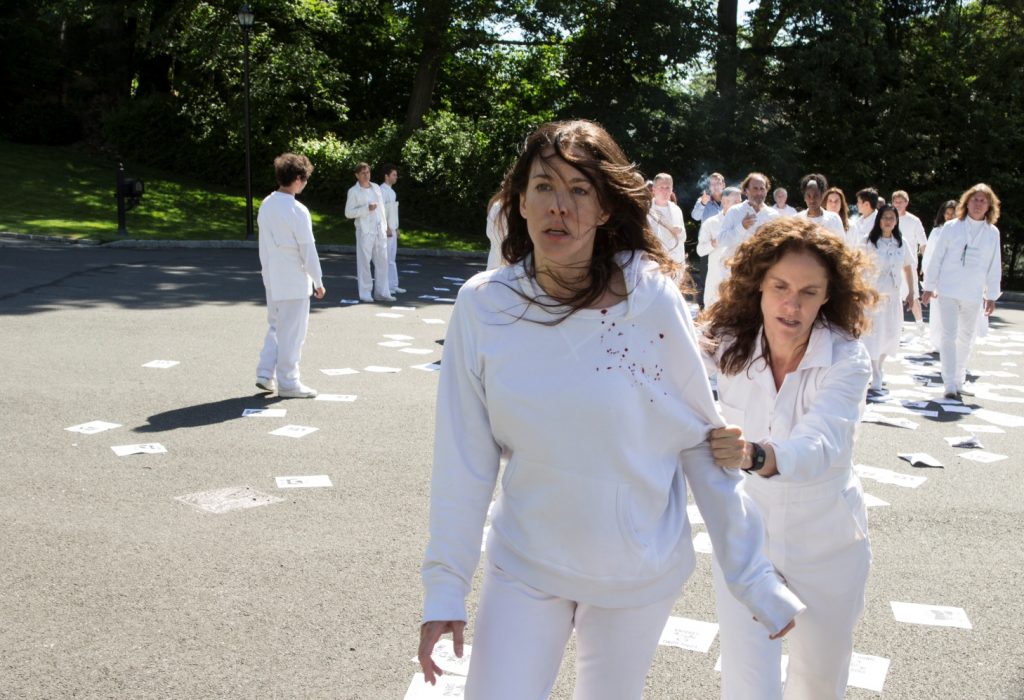We’re bordering on the third anniversary of the COVID-19 pandemic, and everything is normal. Six-foot borders have fallen between friends. Public spaces have been resurrected. Common cold and flu symptoms stand clear from social stigma. In the last three years, the entire world has been presented with its delicate mortality and gone entirely back to normal, or so we believe. In April 2020, my mother came down with an unknown illness. We couldn’t go to a doctor’s office. We could hardly find a functioning emergency clinic. I went to bed distraught every night at the thought of her getting sicker. Yet today, it all sounds so dramatic. But didn’t that week of stress terrify me to the bone? Nearly 7 million people worldwide have died from the unforeseen sickness. Everything is normal, except that. Everything is normal except how we’ve treated our memory, collectively willing it to depreciate in silence.
Funnily enough, a television show saw all of this coming. And it wasn’t The Simpsons. For three years, HBO’s underappreciated speculative drama, The Leftovers, built a slow and stunning meditation on faith, family, and love in the face of devastation. Inventive writing, performances, and score prevail through each season. The journey begins three years after a catastrophe: On October 14, 2% of Earth’s population vanishes. In Mapleton, New Jersey, a mother, exhausted and blue, straps her wailing infant into his car seat. She shuts the door and settles into her position up front. The crying ceases. The audience enters the world of The Leftovers cloaked by sounds of weeping. Yet, this abrupt stillness is unassuming, almost imperceptible. Its implications lie outside the frame, revealed only when the mother moves to take a quick glance over her shoulder. A sneaking sense of dread mounts as she begins to cry out for her baby. The show’s principal leitmotif, “The Departure,” swells with fear. The mother breaks into the parking lot and begs for help from puzzled passersby. The child is gone. A vacant car crashes in the street, and a leashed dog begins to roam with no owner. The mother’s tears echo her baby’s as the screen fades to black. The story begins.
The Departure is a miracle, a curse, or a fluke, depending on which character you ask. The Leftovers progressively leans into its fantastical roots across its three seasons. The eccentricity blurs the line between science fiction and realism such that we can’t be sure of the truth. Is the main character actually speaking to the dead, or has he suffered a psychotic break? Can the pay-per-view prophet truly heal pain with a hug, or is he selling a placebo? The show never tells us one way or another. The absurdity of the speculative genre forces us to question and readjust to our own reality. The only certainty is that no one is entirely certain in their beliefs, no matter how sure they sound. Confidence is a veil the characters wear to hide broken faith.

Reverend Matt Jamison (Christopher Eccleston) and his tortuous journey with faith make one of the most nuanced critiques of human religion I’ve seen on screen. His wife rests in an enduring vegetative state, his church has no congregants, and his hometown despises him. He should be broken, but the Departure and his survival of terminal illness only reignite his faith. Matt will rationalize the inexplicable through Christianity time and time again, but ultimately, there is a level of chaos that just can’t be understood. He loses his community by chasing his faith; by finally accepting skepticism, he’s left with insurmountable grief.
War and disease reveal the unparalleled chaos of life on Earth. When life can be so swiftly stripped away, we can’t help but question its worth. How do we work to feel secure within such a fragile existence? In our world, and Mapleton, we try to move on. Most of our world’s population believes COVID-19 is no longer a threat. But over 100,000 people continue to succumb to the virus every month. Current studies evaluating Long COVID starve for funding as the world continues to discount the risks of the disease. The needless deaths caused by pure irresponsibility are slowly slipping from the collective memory. We never acknowledge how our leaders failed us. Instead, we minimize the social damages arising from two years of isolation. Our children are levels behind in their education, and the Ontario government’s solution is to cut checks. Healthcare workers continue to work overtime despite a rise in burnout and post-traumatic stress. We refuse to accept and grow alongside our losses.
After the events of The Leftover’s opening scene, silence once again takes the place of sobbing. No one is mourning. No one screams. The residents of Mapleton half-heartedly acknowledge the upcoming third anniversary of the Departure. They’re moving on. Or, rather, they believe they are. Certainly, the days will come when we must reckon with our suffering. False prophets, psychotic breaks, and impossible relationships plague the main cast as catalysts for confrontation. The balance slowly tips away from silence, and eventually, the truth becomes deafening. Slowly, The Leftovers reveals that every single character is enduring unimaginable pain. There is no normal; misery cannot rest quietly under a mask. In search of relief, characters run away from home and some to faith. Many embrace denial, while others refuse to forget. They all suffer in their pursuit of stability. This ongoing emotional conflict is what the show accomplishes so well. The grief is substantial yet often quiet. It sits in the corner of every scene like a shadow because if everyone were honest about their pain, their world would fall over the edge. Accepting the chaos is to accept defeat. But, until the final season, no one concedes that they’ve already been defeated.

We feel a sense of duty to move on. The Leftovers reflects upon this fixation with startling clarity. Communities are repulsed when a member cries out in agony. Characters break down in silence in the name of social responsibility. Though they work fiercely to erase it, their pain only gets worse. Those who are honest about it almost all fall prey to a prominent cult — the Guilty Remnant. As living symbols of the Departure, they make increasingly violent efforts to halt any progress toward normalcy. Fundamentally, grief becomes an antisocial behaviour in response to the largest global devastation the world has experienced. Today, this sentiment is reflected all around us. Protective masks have fallen so out of favour that they’ve begun to elicit bewilderment and discomfort from those who abstain. Insisting upon social distance is now bizarre behaviour. Speaking about COVID in anything but the past tense is unusual. As The Leftovers emphasizes, silence and denial are one side of the coin. The pendulum inevitably swings back to sorrow with the force of all we’ve suppressed.
It is torturous to fully stomach the impacts of a global catastrophe. When we cannot endure the grief any longer, we force it down. Despite the continuous turmoil, we try with all our might to rebuild homes upon cracked foundations. But they will never last. Even the ideal, untouched families in The Leftovers have bitter injury resting just under their surface. These fault lines surely crash, and their eruptions are so fabulously heartbreaking that the Departure begins to feel like an act of mercy. Each revelation is illustrated with such restraint that I often find myself too stunned to cry. The story of Evie is a biting yet honest example of irreparable childhood trauma featuring a remarkable performance by Jasmin Savoy Brown. What good is family when they fail to protect you at your weakest? These moments weighed on my mind like burdens no character could bear.
In the end, we all have to reconcile life with its inevitable chaos. Almost nothing is normal now, but it doesn’t have to be. Some of us will lose more than others. Some of us will lose because of others. We can only move forward once we admit that we’ve done damage and received it, and the journey might span our entire lives. But just as The Leftovers insists, life continues to prove that the only way out is through.
